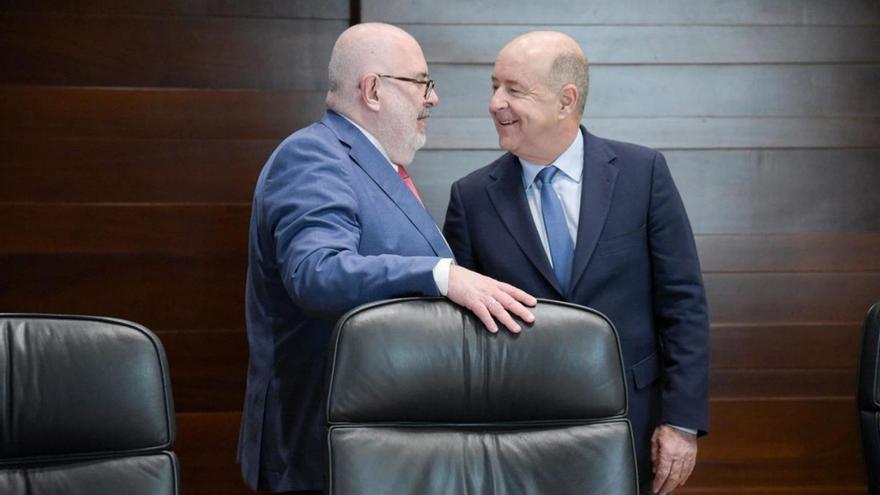
The major business association in the Canary Islands, made up of the Provincial Confederation of Entrepreneurs of Santa Cruz de Tenerife (CEOE-Tenerife) and the Canary Islands Business Confederation, CCE – the employers’ federation of the province of Las Palmas– firmly rejects the introduction of a reduced working day, the new objective of the Minister of Labour and Social Economy, Yolanda Díaz. Both the president of the CCE, Pedro Ortega, and his counterpart at the CEOE-Tenerife, Pedro Alfonso, have expressed their opposition, in line with the national CEOE, to reducing the weekly working hours to 37.5.
The two provincial employer associations in the Canary Islands have been warning about the negative consequences that a reduction in working hours would have on an economy that, like the Canarian one, is characterized by high levels of absenteeism and very low productivity. With these two major problems, especially with minimal productivity which largely explains why the average income of the islanders has only moved further away from the national average since the beginning of the century, generalizing a 37.5-hour workday would ultimately exacerbate these issues, they argue.
In the face of Minister Díaz’s insistence, the CCE and CEOE-Tenerife rebuked the “monologue” that they believe the Spanish Government is holding on reducing working hours. Ortega expressed his lack of understanding as to “why they call it a dialogue when it is a monologue that one must give an opinion on to say yes,” once the proposals put forward by the CEOE have been rejected and “there has been no willingness to discuss.”
The president of the CCE questioned whether with the new conditions that the Government intends to implement, jobs can be maintained. On the other hand, Ortega urged for “caution” in “any resizing or changes we make, as it could affect economic activity” and, therefore, job creation.
His counterpart at the CEOE-Tenerife shared Ortega’s concerns and described the attitude shown by the Minister of Labour as “disappointing.” “It is inconceivable for anyone that it would be profitable for anyone to pay the same for working 37.5 hours as for 40, which would greatly burden small businesses and self-employed individuals with one or two employees, whose turnover is more difficult and whose costs do not cover the little activity they have,” Alfonso affirmed, as reported by Efe.
Therefore, he stated, the CEOE proposes that the intended measure be tailored to each specific sector and even to geographical areas, as they believe that reducing working hours in administrative areas is not the same as in other sectors that require physical presence, such as bars, restaurants, and hotels, for example.
New Meeting
The Deputy Prime Minister, Yolanda Díaz, will make a final attempt to convince the CEOE to agree on a reduced working hours law before sending the proposal to Congress.
The Minister of Labour also announced yesterday that she will send a new proposal to unions and employers, hoping that the latter will either start making written contributions to the text or break off discussions and only negotiate with the unions on how Spain will achieve a maximum working week of 37.5 hours. Next Monday, everything seems to indicate that the tripartite negotiations to legally reduce the working day will come to an end.
“Mockery of Social Dialogue”
As the Government’s negotiation with employers and unions next Monday approaches, tensions are running high after this week’s meeting, where Yolanda Díaz’s ‘number 2’, Joaquín Pérez Rey, the Secretary of State for Employment, visibly criticized entrepreneurs and accused them of “mocking social dialogue” and “democracy” by trying to go back to the situation of six months ago and questioning, in essence, the reduced working hours law. The employers did not bring a written proposal to the table, as requested by the Ministry of Labour, but even so, the Ministry did not want to close the negotiations and invited them to meet again next Monday. No one wants to be the one to break the deadlock, although the game is heading towards a conclusion without an agreement, while employers speak of a “social monologue.” | G. U.
















